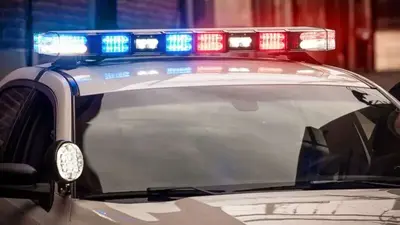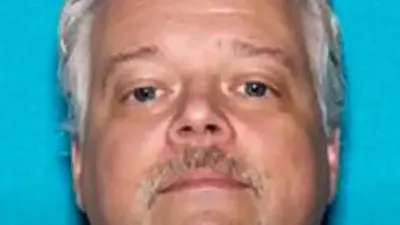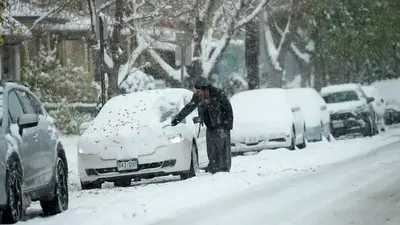US News
Undocumented workers face uncertainty as immigration law takes effect in Florida
Florida resident MarÃa and her husband say they are afraid to leave their homes.
The couple, who are undocumented workers, only leave their house to go to work, out of fear they'll be deported.
"We're either locked inside here or we'll never come home," MarÃa, who did not want to give her last name, told ABC News in Spanish.
Florida's SB1718, one of the nation's strictest immigration laws, took effect on July 1. Individuals who knowingly transport undocumented immigrants into the state may now face felony charges. Florida has also invalidated out-of-state driver's licenses that are given to undocumented immigrants.
Hospitals and medical providers that accept Medicaid will now be required to ask people for their immigration status. These and other features of the law have caused mass confusion and fear throughout Florida, not only for immigrants but also for Floridians.
"We've been getting a lot of emails from Floridians who are trying to interpret the law for their own safety and for the safety of their loved ones. We've had folks contact us because their partner is undocumented," said Democratic Rep. Anna Eskamani, who represents Florida's 42nd House district. "We've gotten a lot of these questions that are really unique and situationally specific but intersect with confusion about this policy. Are they going to be able to drive to work anymore?"
Gov. Ron DeSantis, a Republican who is a 2024 presidential hopeful, said the law increases penalties for human smuggling. When the governor signed the bill into law, state senator Blaise Ingoglia said it gives the state "the most ambitious anti-illegal immigration laws in the country."
The governor and the state senator's offices did not respond to ABC News' request for comment.
MORE: DeSantis says he would seek to end birthright citizenship for children of undocumented immigrants
The law imposes felony charges on individuals who "knowingly and willfully" transport undocumented immigrants into the state. Immigrant advocates say this broad description will burden law enforcement officials, who are not authorized to enforce federal immigration laws, with determining whether a person can be charged simply for driving an undocumented loved one into the state.
"The fear is that this is going to just result in racial profiling and I think it's inevitable that it will be. How are people to enforce this law without engaging in racial profiling?" said Paul Chavez, senior supervising attorney for the Southern Poverty Law Center's Immigrant Justice Project.
The SPLC, ACLU and other organizations said they plan to file a lawsuit against DeSantis, focusing specifically on the restrictions the law imposes on transporting undocumented immigrants into the state.

Alvaro Zabaleta, a spokesperson for the Miami-Dade Police Department, told ABC News that officers will not be stopping drivers they suspect are undocumented or may be driving with an out-of-state license without legal citizenship status. He said his department is concerned the law will destroy the trust between immigrants and the police.
"Our main concern is that we don't want our residents to be afraid to call the police if they were physically abused, if they were sexually abused," Zabaleta said. "We're here to do community policing, we're here to be involved with the community. We're not here to be walking up to you and ask you for documentation and papers, that's not our function."
But just a day before the law went into effect, Zabaleta acknowledged his police department was still waiting for guidance from the Florida Department of Law Enforcement about how to handle incidents where an undocumented immigrant is found to be driving with a legally obtained out-of-state driver's license.
"We haven't received clarification on that or confirmation from the Florida Department of Law Enforcement the Palmer law enforcement. They said they're working on getting us that so that way we have direction, because this is new territory for everyone," he said.
The law also seeks to crack down on employers who hire undocumented workers. It requires private employers with 25 or more employees to use E-Verify to determine if a person has work authorization. Employers who don't use E-Verify as mandated by the law can be fined. Individuals who use falsified or invalid documents to get work authorization can also face criminal penalties.
Tessa Petit, executive director of the Florida Immigrant Coalition said many seasonal workers in Florida are questioning whether it's safe for them to return this year.
"We have partners in Alabama asking us what do we tell [immigrants]," she said. "Our agriculture depends on these migrant farm workers, so we don't know if they'll be allowed back in."
Eskamani said some construction sites reported missing about half of its workforce in June when demonstrators staged "a day without an immigrant" to protest the new law. She has also been in touch with medical providers to remind them that immigrants are not required by law to answer questions about their immigration status.
Communities throughout the state have also been hosting "know your rights" meetings to educate people about what to do in similar situations and if they're stopped by police.
"They do not need to provide their legal status. They do not need to answer questions. They can respectfully ask for the presence of an attorney, whether it's an immigration attorney or a criminal defense attorney and do not have to engage with law enforcement," said Maite GarcÃa, staff attorney at the ACLU of Florida.
MarÃa has been going to these meetings and is urging fellow immigrants to learn about their rights.
"Even though we may be undocumented, we have rights as humans and we can ask that we're respected," she said. "Sometimes laws aren't enforced as they are written. Sometimes it's worse."
-

 US News10h ago
US News10h agoWhat Trump’s Win Means for Crypto
-
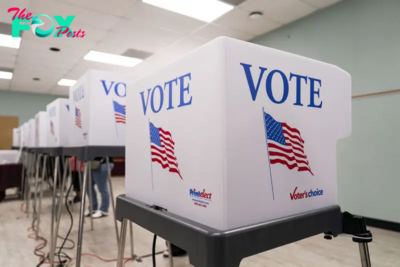
 US News15h ago
US News15h agoWhat to Know About the Russia-Linked Bomb Threats in Battleground States on Election Day
-

 US News1d ago
US News1d agoSevere Storms in Oklahoma Injure at Least 11 People and Leave Thousands Without Power
-

 US News3d ago
US News3d agoMore Than a Month Later, Communities Struggle to Rebuild After Hurricanes Helene and Milton
-

 US News5d ago
US News5d agoWhat to Know About the Suspect Behind Ballot Box Fires in the Northwest
-

 US News6d ago
US News6d agoSupreme Court Allows Virginia to Resume Its Purge of Voter Registrations
-
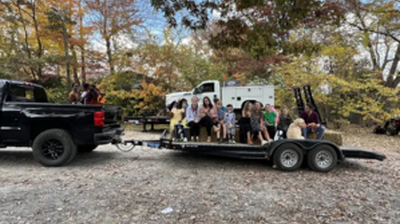
 US News1w ago
US News1w agoHow Communities Impacted by Hurricanes Helene and Milton Are Celebrating Halloween
-

 US News1w ago
US News1w agoThe U.S. Tasked Deborah Lipstadt With Monitoring Antisemitism. She’s Been Busy
